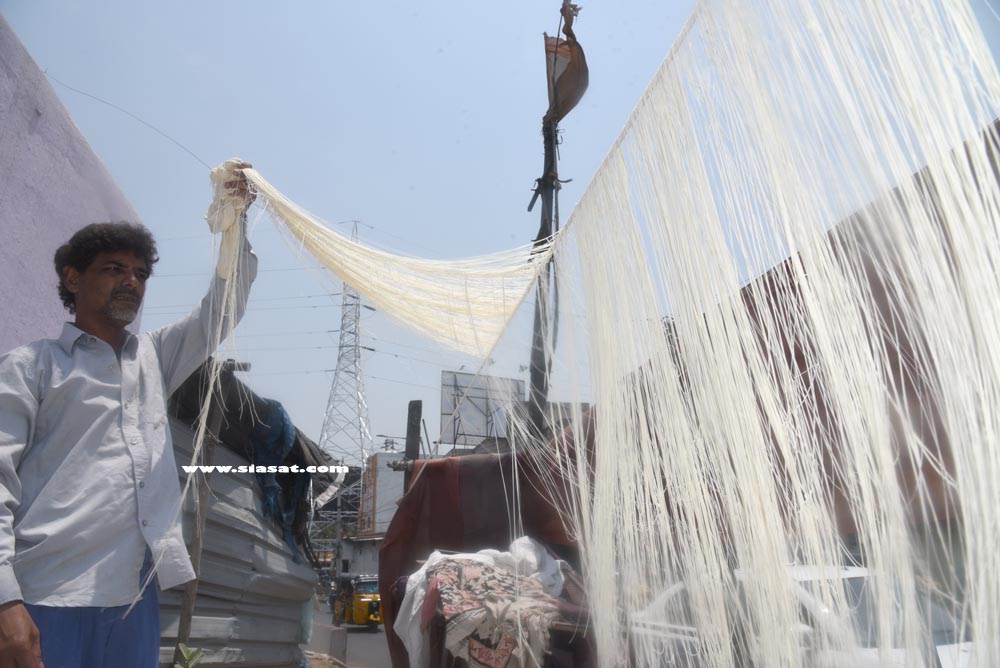
Hyderabad: In the tiny lanes of Chaderghat, Dabeerpura, Yakutpura, Golconda, and Langer Houz, families work for weeks in the holy month of Ramzan to make vermicelli (seviyah). While branded buying seviyah from supermarkets is also an option, it is the traditional makers of the vermicelli who have continued their craft and make the occasion special.
Seviyah is used to make Sheerkhorma, a special dish made with milk, dates and dried fruits. It is served specially on Eid in Muslim households. To be precise, it is almost as if there is no Eid without Sheerkhorma.
When it comes to Seviyah, there are both: machine made and hand made. The latter would have been a dead craft today, had it not been for the handful of families that still make it. In fact, some do so thanks to demand from customers. The age-old tradition, handed over generations, still continues in Hyderabad despite the invention of machines.
The work to make Seviyah in fact begins four months prior to Ramzan, when the families prepare the vermicelli. What makes the handmade version special is that it tastes better than anything made by machines. “The handmade variety tastes much better. We are making it with our hand for years,” said Mohd Kareem, who has been making Seviyah for over 20 years now.
While a machine-made roll of Seviyah can be available in the market for Rs 50 to Rs 60, the same handmade variety is sold for Rs 150 to Rs 200. In spite of the higher cost, some families still prefer the one made by hand.
Fareesa Begum, a 55-year-old, third generation Seviyah maker said it is not an easy task. “A lot of strength is required to pull the maida and stretch it out to finer strands. It takes a lot of patience, time, and energy. It is an art in itself,” she said.
However, over the years, many families have abandoned the practice due to the heavy labour work and lesser return. Many families have moved out of the vocation. In several families the men and women are taking up other jobs. “Income is low and work seasonal. There is no guarantee how much we will earn. So many moved out of the vocation,” said Durdana, who makes seviyah at Yakutpura.

